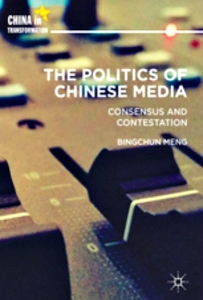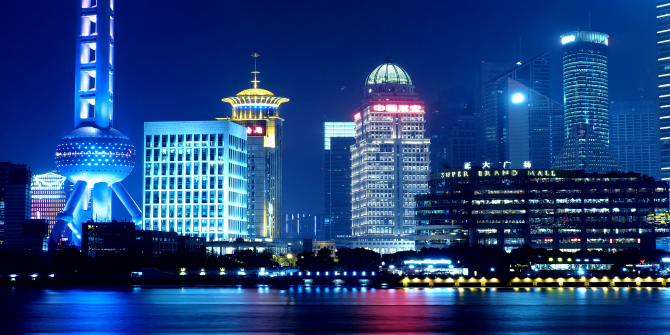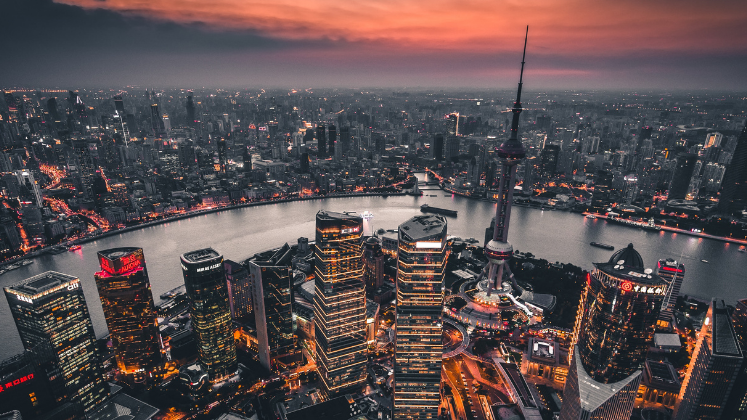In The Politics of Chinese Media: Consensus and Contestation, Bingchun Meng explores how the media industry in China has shaped and been shaped by different agents, showing how consensus and contestation have emerged in different locations. In offering a subtle account that aims to unsettle the oversimplified academic discourse that applies Western theory to Chinese contexts, this book lays a solid foundation for future research on Chinese media, finds Meng Hin Ng.
The Politics of Chinese Media: Consensus and Contestation. Bingchun Meng. Palgrave. 2018.
 Find this book (affiliate link):
Find this book (affiliate link): ![]()
By comparing Mao Zedong and Xi Jinping in her final chapter, Bingchun Meng, the author of The Politics of Chinese Media: Consensus and Contestation, raises a classic problématique concerning the question of polity maintenance in post-Mao China: the reestablishment of Chinese Communist Party’s (CCP) hegemonic rule after the political turmoil of the Cultural Revolution. Since communist ideology was no longer sufficient for legitimisation, other sources had to be drawn upon. The author, from the perspective of Chinese media politics, attempts to resolve such a question by exploring how the media industry has shaped and has been shaped by different agents from the economic reform era onwards. Whereas consensus between actors could be agreed in specific contexts, competing accounts of diverse social groups emerged in others.
Nevertheless, such an official account can be challenged or stabilised by the Chinese public’s ‘memorising’ of their own history. Given China’s unique historical path, Meng argues that the simple dichotomy of Western concepts (i.e. freedom versus censorship) cannot be applied directly to the Chinese context. In contrast with the general proposition that Chinese media is ‘instrumental’ in terms of triggering change in the future, Meng treats it rather as the product of the Chinese political legacy, as a field of struggle and as having its own trajectory that cannot be explained through general Western-centric theory. Conditioned by its past, the CCP on the one hand has had to construct its historical-political narrative with carefully selected material, whereas the media, on the other hand, still carries its role of disseminating the party’s propaganda.
In addition to this historical embeddedness, Meng further elaborates the theoretical framework of her book by noting that while marketisation and globalisation diversified power origins and opened up space for the redistribution of media resources and the negotiation of meaning between different agents, media is also embedded in the social context, reflecting resource inequality between different social groups and prolonging the making of everyday meanings that are crucial in ‘legitimising existing social relations’ (Norman Fairclough 2001, 2; quoted in Bing, 10). Media and society are thus mutually constitutive: mediation reproduces existing social relations and structures, and vice versa frames social interactions.
 Image Credit: Shanghai Oriental Pearl TV Tower, Shanghai, China (ioa8320 on Pixabay CCO)
Image Credit: Shanghai Oriental Pearl TV Tower, Shanghai, China (ioa8320 on Pixabay CCO)
With these three theoretical assumptions established, Meng begins her analysis by first providing a historical sketch of how the Chinese state has shifted from being ideologically dominated to becoming ‘depoliticised’. Given the ideological paradox of the state breaking from its communist past to embrace capitalism, which goes against its communist doctrine, the Chinese state, from the era of Deng Xiaoping onwards, is attempting to transform itself into ‘a pure mechanism of power without ideology’ (32). The state’s narrative is nevertheless challenged both by the public and factions of the party internally, while in the global arena this tone remains highly sceptical given that Western democratic-liberal ideology is still prevalent in international relations.
Given this context, the author then selects three different sectors of the media industry – news media, entertainment media and digital communications – as empirical evidence to discuss. In the news media chapter, Meng argues that it cannot be understood simply according to Western theories of journalism (i.e. notions of free press and democracy), but must rather be rooted in the socialist history of the CCP. The socialist ideal of journalism as a component of mass line that originated and represented the interests of the people, following the capitalistic reform in the post-Mao era, has led to the proliferation of local media and subsequent media conglomeration. The logic of state control in this process also evolved into top-down guidance, where media became the means of state domination. The efforts of the state to counter the impact of capitalisation has resulted in changes to the news industry itself, particularly regarding its relationship with the state and the internal ‘media ecology’.
The following chapter discusses the cultural politics of the entertainment media, with a similar structure that begins by criticising the concept of ideology as state-centric, when it should instead be understood as a multifaceted formation process including institutions and meaning construction. Using film and television programmes as examples, the globalisation process results in the commodification of the entertainment industry, bringing specific conditions that give rise to or limit the emergence of media content. Using as examples the film The Piano in a Factory (Zhang Meng, 2010), which depicts the self-empowerment experiences of former state-owned enterprises workers who fall from the ‘safe net’ of state subsidisation, and reality television, which contains elements of self-disclosure, personal choice and optimism, Meng argues that the storytelling strategies of these two different types of cultural production reflect the broader structural transformation, from the socialist nostalgia of the former to the neoliberal mentality to the latter.
The emergence of Chinese internet research which concentrates on its instrumental function in promoting democratisation in China is, Meng argues, an oversimplified account premised on Western-centric dichotomies (e.g. state versus society, or centralised control versus dispersed networks). Meng references such examples as ‘Little Pinkos’, where online nationalistic mobilisation has challenged the state’s depoliticised efforts in the public sphere; the notion of ‘spendthrift chicks’, which subverts the socialist ideal of the gender role of women by instead celebrating their ‘purchasing power’; and middle-class parenting, which concentrates on education as a means to compete in the globalisation process instead of the socialist purpose of politicisation. Through these, Meng highlights how diversified power could be exercised by the state and a capitalistic economy beyond the simple assumption of centralised control. The media discourse thus shaped is also structuring the subjective experiences of agents, yet is itself conditioned by the political and social context.
Meng thus offers a more subtle account aiming to unsettle the oversimplified academic discourse on how the Chinese media both formulates, and operates in, the actual Chinese context rather than adopting Western liberal theory to analyse its media politics. The landscape of Chinese media is not determined by the state: while hegemonic, it cannot contain everything within its grasp in the post-Mao capitalisation era. The state itself is constrained by its own spectre of history and the burgeoning capitalistic economy. Different social groups in China also participate in the framing of the media landscape, re-producing or undermining the discourses, practices and structures that are together shaping Chinese media politics.
While the book gives more insight into how the Chinese media operates in context, elaboration on several issues will further enhance our understanding. In addition to criticising the Western account, it would be intriguing to explore how Western discourse and practices have nonetheless influenced the actions of the Chinese state and society at different dimensions and levels. Furthermore, the structure of emotions or sentiments expressed in the behaviour of agents could be investigated as an additional outcome of certain political-economic forces in the ever-changing context of China, perhaps framing or even challenging the state and the party. Nevertheless, this book has laid a solid foundation for future research on Chinese media.
Note: This review gives the views of the author, and not the position of the LSE Review of Books blog, or of the London School of Economics and Political Science. The LSE RB blog may receive a small commission if you choose to make a purchase through the above Amazon affiliate link. This is entirely independent of the coverage of the book on LSE Review of Books.







